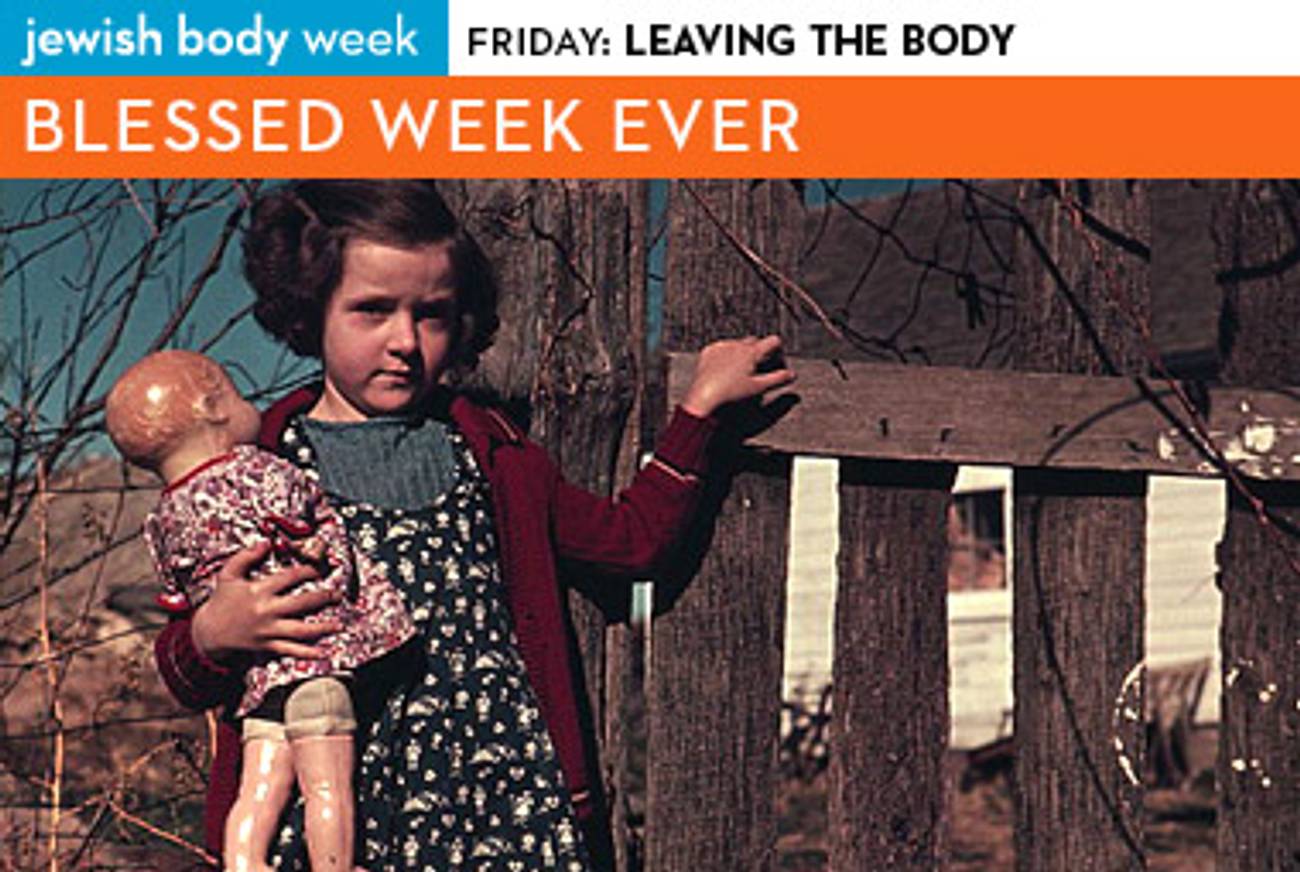The Children Are the Future
A haftorah of singing praise and raising kids




As Tablet Magazine spent the past week looking at the Jewish body, from bris to burial, the opening sentence of this week’s haftorah presented an apt, if puzzling, coda.
“Sing, O barren, thou that didst not bear,” it reads, “break forth into singing, and cry aloud, thou that didst not travail; for more are the children of the desolate than the children of the married wife, saith the Lord.”
Reading this week’s parasha, one could be forgiven for taking this verse literally: Noah, the hero of the Torah portion, has barely survived a flood that devastates life on Earth when, after a much-needed glass of wine too many, he passes out in his tent. His son Ham walks in, sees the nakedness of his father, gleefully shares the news with his siblings, and is eternally cursed for his indiscretion. After such a dim glimpse of family life, barrenness may not look like such a terrible option; if kids are likely to observe their parents’ most bitter failings and then rant about it to others, let those who did not bear children praise the Lord, indeed.
When Noah curses Ham—“A servant of servants shall he be unto his brethren,” cries the enraged father once he’s awake and sober—one is put in mind of Philip Larkin’s poem, “This Be the Verse.” As the last stanza boldly declares, “Man hands on misery to man./ It deepens like a coastal shelf./ Get out as early as you can,/ And don’t have any kids yourself.” Is this what the haftorah is trying to tell us by urging the childless to break into song? That our relationships with our children are inherently doomed?
Further reading answers the question plainly. The barren woman, a metaphor for the exiled people of Israel, is told to rejoice as her husband, God himself, would soon bless her with countless offspring, “and make the desolate cities to be inhabited.”
It’s an apt and poetic sermon about nationhood, but it works just as well when read as a primer on parenthood. Let us consider for a moment the haftorah’s discussion of the children of the desolate and the children of the married wife. The latter, presumably, are concrete kids, the fruit of a blessed union, whereas the former are ethereal, the sum of all hopes, the dream of the destitute. Like Plato’s theory of forms, the children of the desolate are theoretical ideals, not faulting and flawed flesh and blood. They are perfect, and it is this perfection that is the cause for the barren’s joyous song—she has no children, but the ones she might have one day are incomparable.
This is more than a mere message of hope. It’s a radical logic for life. The notion of continuity, the haftorah tells us, the very act of birthing a new generation, depends on our belief in redemption and our acceptance of our own powerlessness. The people of Israel, the Lord promises, will thrive, but not right now; they will return to their promised land, but not in the foreseeable future. While they wait, they’ll surely notice other nations, other peoples, thriving in the present, rich with material and might; and yet wait they will, faithfully wait for some radiant moment in the future when deliverance finally arrives. To the human mind, constantly in search of concrete rewards, nothing could be more difficult; but for the human heart, constantly in need of hope, nothing could be more uplifting.
The same, perhaps, could be said of parenting. There is, of course, much worldly satisfaction in watching one’s children become thoughtful, independent adults, but, at its heart, having children is a mad act of faith. This, I think, is why so many otherwise-rational people so often speak of their children in that hyperbolic, quivering way that makes us non-parents queasy. It’s because parenthood is, at heart, a nearly messianic pursuit. It requires one to believe, sometimes against all available evidence, that one’s children will thrive and meet the loftiest expectations, reach the loftiest heights, enjoy the most rewarding lives imaginable. We raise real children, whom we love no matter their shortcomings, but we never lose sight of those ephemeral beings, the grown-ups that they might one day be; and even though we know we may not be there to see our children grow, even though we somberly understand that our hopes may be crushed by a chain of bad decisions and events beyond our control, even though we may respect our children for having ambitions of their own that have nothing to do with our own, we sing with joy.
If we didn’t, life would be little but a strand of disappointments and defeats. Our own mortality, never far from our minds, would crush us under its insufferable weight. Life would be lived in anticipation of its inevitable end. But by believing—in God, in our people, in our children—we transcend. We have faith in a future that may not include us, and may not unfurl according to our desires, but that would nonetheless march on, oblivious and unstoppable. And nothing could make us happier.
Liel Leibovitz is a senior writer for Tablet Magazine and a host of the Unorthodox podcast.
Liel Leibovitz is editor-at-large for Tablet Magazine and a host of its weekly culture podcast Unorthodox and daily Talmud podcast Take One. He is the editor of Zionism: The Tablet Guide.